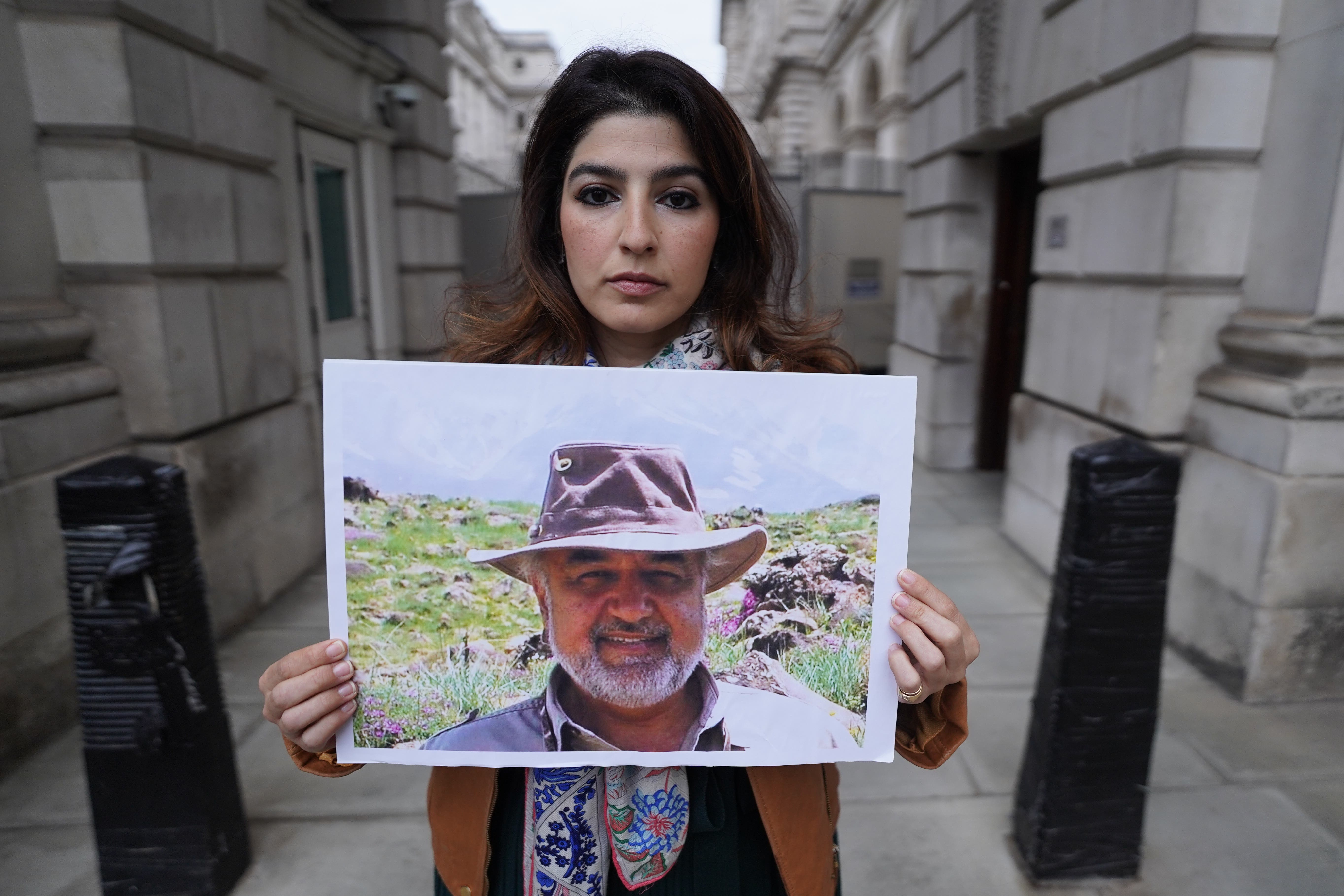British-born environmentalist freed in Iran-US prisoner exchange
Morad Tahbaz, who also holds American citizenship, was thought to be one of five US prisoners to leave Tehran on Monday.

A British-born environmentalist who was jailed in Iran has been freed as part of a prisoner exchange brokered between the US and Tehran.
Morad Tahbaz, a British-American conservationist of Iranian descent, was one of five US detainees who flew out of the Iranian capital and into Doha, Qatar, on Monday as part of the deal.
Prime Minister Rishi Sunak is “extremely pleased” that Mr Tahbaz’s “terrible ordeal is finally over”, Downing Street said.
Iran sought the release of five prisoners in the US in return. No 10 said the UK did not play a role in the negotiations.
By seeking to use foreign nationals as bargaining chips, the regime’s leaders are fatally undermining Iran’s credibility on the world stage. They must stop using foreign nationals for political bargaining
Mr Sunak’s official spokesman said: “The Prime Minister is extremely pleased that Morad Tahbaz’s terrible ordeal is finally over and that he will be reunited with his loved ones.
“By seeking to use foreign nationals as bargaining chips, the regime’s leaders are fatally undermining Iran’s credibility on the world stage. They must stop using foreign nationals for political bargaining.”
Along with Mr Tahbaz, those freed from Iran included Siamak Namazi and Emad Sharghi. US officials have declined to identify the other two prisoners.
The complex Qatar-brokered agreement included the unfreezing of some 6 billion US dollars (£4.8 billion) of Iranian money that was blocked in South Korea after US sanctions on Iran were strengthened in 2018.
The American prisoners were reportedly recently moved to house arrest at a hotel in Tehran as part of the deal before their release.
Mr Tahbaz was previously held at the notorious Evin prison.
The prominent conservationist and board member of the Persian Wildlife Heritage Foundation was arrested during a crackdown on environmental activists in January 2018.
He was sentenced to 10 years in prison with his colleagues on vague charges of spying for the US and undermining Iran’s security.
His wife was also placed under a travel ban by the Iranian authorities.
Mr Tahbaz was freed from prison on furlough on the day in March last year that Nazanin Zaghari-Ratcliffe and British-Iranian dual national Anoosheh Ashoori were freed and allowed to return to the UK, but he was returned to custody after just two days.
He was allowed medical care on another temporary furlough with his family in Tehran last July on the condition that he wore an ankle bracelet.
Ms Zaghari-Ratcliffe’s husband said it was “very hard” to see Mr Tahbaz “left behind” in 2022 and that his family would be feeling “a mixture of trepidation and real hope and fear” before his plane took off.
Richard Ratcliffe told BBC Radio 4’s World At One programme: “When you go through that experience, you certainly believe anything bad could happen at the last minute.”
Tensions between the West and Iran remain high over Tehran’s nuclear ambitions.
Amnesty International called on the UK Government to “drastically upgrade its procedures” to prevent more “unnecessary heartbreak” like the case of Mr Tahbaz.
The human rights organisation said it is “delighted” for Mr Tahbaz and his family but criticised officials for being “uninformative” and “too passive” over the arbitrary detention of British nationals overseas.
Downing Street said it was not involved in negotiations between the US and Iran and that it is important “not to jump to conclusions” about the process.
US Secretary of State Antony Blinken said the State Department had worked “tirelessly” to bring the US citizens home and “will not rest until we have brought home every wrongfully detained American”.
He added: “We continue to work with like-minded countries to deter future hostage-taking and hold Iran and other regimes accountable for such actions, including through actions we are taking today.
“US citizens should not travel to Iran for any reason, and I call on any US citizens in Iran to depart immediately.”
Bookmark popover
Removed from bookmarks